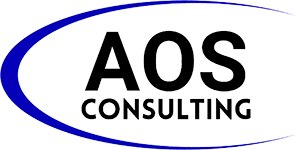In the last month off dealing with COVID-19, many workplaces have shut down their offices. Many employees are working remotely, and meeting via web-conferencing platforms. Read on to learn more about keeping safe, healthy and productive during unusual times.
Observing Basic Health and Safety Guidelines
Although many businesses are closed, some essential services may still be open, and there may be times when customers and employees need to come to the office. If this is the case, heed the 6-foot social distancing guidelines, and wear a mask, if possible. Business can easily be done, however, via email, phone, or online. With remote interaction becoming the norm, new considerations exist, including cybersecurity and access to data among them.
Keep Your Network Secure During COVID-19
Difficult times can bring out the best and worst in people. While many people have risen to the occasion and looked to help others, cybercriminals are also at work. One way they aim to attack is phishing emails designed to get hold of personal information. Cybercriminals can even make their emails look like legitimate communications from agencies like the World Health Organization. Certain clues can give away these emails–spelling and grammatical errors, a generic greeting, or an urgent call to action designed to play on real fears. If in doubt about an email, you can point your mouse arrow at the email address or URL, to learn where the message came from. Of course, do not click on any link in the message, but report the message and then delete it. To keep your company’s network safe, consider remote network monitoring and make sure reports know and understand cybersecurity practices.
Make the Most of Online Tools
Communications and collaboration platforms, like Microsoft Teams, Zoom and LogMeIn, are being used so much more in these times. These tools allow a person to set up a video chat and invite others using a link and communicating when the meeting will start. What’s more, they work across multiple devices like phones and laptops, making them easy to use and support.
Remember, these are simply tools, and the way you use them is up to you. What are the mission, vision and goals of your business? How will you assign work? An idea to consider is having daily and weekly check-ins with your reports, to find out how they are doing professionally and personally. Before starting a videoconference, make sure the reports know how to use the platform, and in what they prefer to use it. Perhaps they will only want to interact by phone, and not by video.
Use Communication and Collaboration to Sell
Even though your physical office may be closed, that doesn’t mean you can’t still sell and do business in other ways, and generate revenue. Sales calls and meetings can still happen via videoconferencing, and people can work together via email and phone. Not only that, but social media is even more important now. Consider observing what your people are talking about on social media, and interact with them, answering questions and concerns. Letting your customers (and employees) know your business is here for them is vital in such unusual times.
Evaluate Your Company’s Disaster Recovery and Business Continuity Plans
COVID-19 can serve as a diagnostic tool to learn how well your organization’s disaster recovery and business continuity plans are working. While the epidemic may not affect your business in quite the way a natural disaster would (in that physical infrastructure is not affected), it still has an impact on your network. Can your employees still access data and mission-critical applications securely? Is there enough bandwidth for remote workers to use your systems reliably? Checking in with employees can also help you figure out what is working and what needs improvement. Getting as much information as possible can help you fine-tune your preparation for future disruptions.
The COVID-19 outbreak compels companies to do business differently. Using available tools like videoconferencing, and limiting in-person interaction, can help your business stay in business. For help with your business in these unusual times, contact your trusted technology advisor today.

